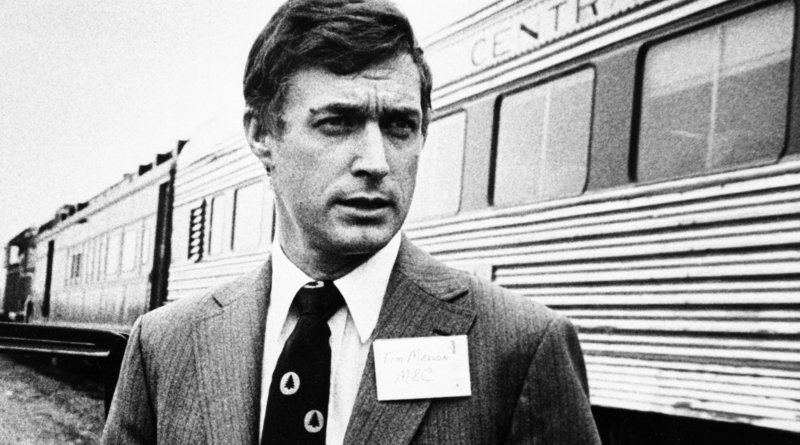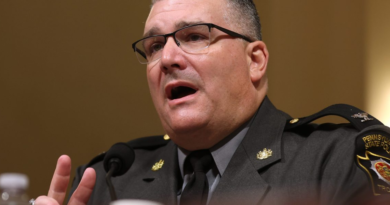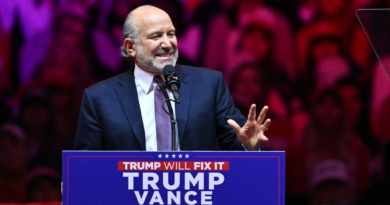Reclusive billionaire heir Timothy Mellon gave $125 million to help elect Trump, even more than Elon Musk donated
One of the largest donors to help President-elect Donald Trump was Timothy Mellon, an heir to the generational fortune of Gilded Age tycoon Andrew Mellon.
In the 2024 election cycle, Mellon, 82, donated $125 million to the super PAC Make America Great Again, Inc. that supported Trump, according to Federal Election Commission documents.
And including, donations to help Republican congressional candidates and Robert F. Kennedy Jr., Mellon donated a total of $165 million, according to the campaign finance tracker Open Secrets.
Mellon wasn’t the only billionaire to make nine-figure outlays for Trump. Tesla CEO Elon Musk gave at least $119 million to a PAC he set up to re-elect Trump. When including money for other Republicans, Musk gave at least $132 million.
But he did so in a much more public manner than Mellon, who is known to eschew the spotlight. Mellon is a grandson of Andrew Mellon and reclusive billionaire who in the past expressed pointed views about federal entitlement programs, which he termed “slavery redux.”
Mellon seldom speaks to the press and appears to have little interest in hobnobbing with the politicians to whom he donates. Even though he’s dispensed huge sums of money to political groups and politicians, many have never met him. And during the 2020 election, Republican staffers had to search him on Google to find out who he was when he reached out with the offer of a major donation, according to the New York Times.
Mellon did not respond to requests made through his family’s foundation. Other efforts to reach him were unsuccessful, including queries to publisher he worked with. A lawyer who worked with him in the past said he doesn’t represent him anymore.
In a rare interview from 2020, Mellon told Bloomberg he believed Trump had delivered on what he’d said on the stump.
“He’s done the things he promised to, or tried to do the things he’s promised to…in trade and righting the balance between our country and the rest of the world, especially China,” Mellon said.
Mellon donated to RFK Jr. before he dropped out
In addition to Trump, Mellon donated to Robert F. Kennedy Jr.’s bid for president. He also gave $25 million to the political action committee American Values 2024 that supported Kennedy.
Kennedy blurbed Mellon’s self-published autobiography panam.captain released in 2015.
“Tim Mellon is a maverick entrepreneur who embodies the most admirable qualities of what FDR called ‘American Industrial genius,’” Kennedy wrote of Mellon. (Mellon and Kennedy share a publisher in Skyhorse Publishing).
About a hundred years ago, the Mellon family was heavily involved in American politics. Mellon’s grandfather Andrew was Treasury secretary from 1921 to 1932. In that role, he cut taxes for America’s wealthiest and successfully campaigned to remove any estate taxes so that he could leave his fortune to his heirs. Prior to his time in the public sector, the elder Mellon made his money in banking, industrials, and investing in the early stages of companies.
The Mellon family remains one of the country’s richest with a combined net worth of $14 billion, according to Forbes. Timothy Mellon’s exact financial holdings are not well understood. In a 2014 deposition, he said his net worth was roughly $700 million. The London Times has estimated it at $1 billion. A relative told Vanity Fair that Mellon didn’t want people to know his true net worth, putting it closer to $4.2 billion.
It seems the younger Mellon came to politics later in life. From 1996 to 2018, Mellon donated about $350,000, according to the Wall Street Journal, far less than the hundreds of millions he has poured into backing Trump-era Republicans. In the 2020 election, Mellon donated $60 million to Republican candidates, including $20 million to Trump, according to Open Secrets. In the 2022 midterm elections, he gave $41.7 million to candidates.
‘He wants no one to tax him’
In addition to donating to candidates and their political action committees, Mellon has also given money to other conservative causes.
In 2021, Mellon donated $53 million to Texas Governor Greg Abbott’s fund to build a wall on the state’s border with Mexico, according to reporting from the Texas Tribune. Mellon’s donation amounted to 98% of the money the fund ended up raising. The donation was likely tax deductible because it was made to a state government to be used for public works.
Other members of the Mellon family were shocked and, even appalled, at their relative’s support of Trump, though some suspected it may have to do with taxes.
“I think what it comes down to is he wants to be left alone, and he wants no one to tax him,” one member of the Mellon family told Vanity Fair. “It’s that libertarian viewpoint that’s become radicalized. There are a lot of really rich people out there who just don’t need to think about what’s best for America anymore.”
Even though he inherited one of the great American industrial fortunes, Mellon still went into business for himself. In the 1980s, he took over a railroad company called Guilford Transportation Industries that bought up several smaller rail lines in the Northeast. Several years later he rebranded it Pan Am Systems after he bought the logo and name from the defunct airline. In 2020, Mellon sold the company to CSX Transportation for $600 million.
Politically Mellon is ‘to the right of Attila the Hun’
Like the men he donated to, Mellon is the scion of a wealthy family who over the years saw his oddball tendencies morph into virulent rightwing views.
Years ago, Mellon was fascinated by the disappearance of aviator Amelia Earhardt, even donating $1 million to explorer Ric Gillespie who was trying to find her missing plane. In exchange for the donation, Gillespie let Mellon join the expedition. Mellon’s posts on an online forum about Earhardt, moderated by Gillespie, eventually turned into political screeds against the IRS, the intelligence agencies, and climate change. Gillespie had to limit his ability to post on the site.
“His views were somewhere to the right of Attila the Hun,” Gillespie told the New York Times.
Mellon later sued Gillespie, alleging the latter already knew where Earhardt’s plane was located when he received the $1 million donation.
In his self-published 2015 autobiography, Mellon expounded on his political views. In one passage, Mellon takes a particularly strong issue with government programs, which he believed made their beneficiaries dependent on welfare rather than work to get by.
“For delivering their votes in the Federal Elections, they are awarded with yet more and more freebies: food stamps, cell phones, WIC payments, Obamacare, and on, and on, and on,” Mellon wrote. “The largess is funded by the hardworking folks, fewer and fewer in number, who are too honest or too proud to allow themselves to sink into this morass.”
Throughout the book he referred to Black people with racist stereotypes that they have a poor work ethic and are aggressive. “Black people, in spite of heroic efforts by the ‘Establishment’ to right the wrongs of the past, became even more belligerent and unwilling to pitch in to improve their own situations,” Mellon said in his book.
Mellon stood by the comments he made in his book. “I said everything I wanted to say. I don’t have any regrets,” he said in the 2020 Bloomberg interview.
Because Mellon makes few public appearances, it is difficult to divine his intentions behind the donations he made. Many candidates he has donated to report never having met him, despite receiving millions in contributions.
Though for some in his family that reclusiveness is not a surprise. Family members quoted by Vanity Fair called him “socially awkward” and “not a very social person.”
A 1978 book on the family’s history titled The Mellon Family: A Fortune in History by Burton Hersh hints at Mellon’s isolation. “My view of families is that they’re an anachronism. The family unit is not a functioning entity anymore. It no longer serves an economic need. I suppose it’s interesting as a social phenomenon,” Mellon told Hersh.




